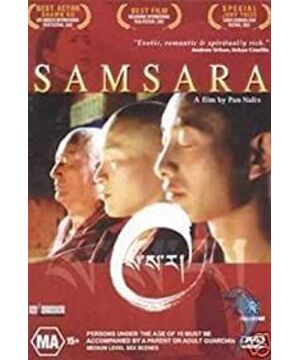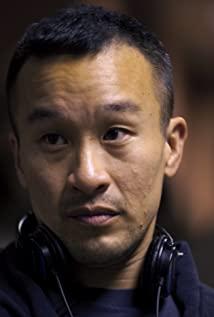From her bold pursuit of love to a series of details in her later life, it all shows her great wisdom. When Dash discovered that the grain harvester had deceived them, Pama loudly declared that it was her husband and supported her husband's resistance to him. When the child was wearing thin clothes and rushed to the ice and snow outside the house, she also knew that the child would only come back if she felt the cold. The dialogue about "a branch falling into the water" is more like a Buddhist verse on a stone that appears at the beginning and end of the film, and she also expected her husband to be unfaithful to her. Everything seemed to be under her control, but it still didn't stop her husband from leaving.
When the actor shaved his head again in Dashi and was about to return to the temple, I thought to myself, it is just a religious film that teaches people to be more devout, and the ultimate state is to have no desires and no desires. Although I am not very satisfied with the result, I still condemn him for being selfish and irresponsible. Why should he leave his wife and young children ruthlessly for his own consummation? Is he really enlightened? Or just a jerk, tired of life now, just escaping reality?
However, Pama appeared at this time. She told the story of Shakyamuni's wife. His wife had done good deeds before him, and after her husband left, she also shaved her hair and lived an ascetic life. Living a life of asceticism, the resolute husband became a living Buddha and was worshipped by everyone, while his wife was no longer mentioned.
But Da Shi, who thought he had decided to go, actually cried bitterly and wanted to go back with his wife. It was so capricious, just as his wife said: "If you crave the Dharma as strongly as your love for me, you can become a Buddha." . Some people say that every time Da Shi's transformation is so thorough, I think it's the exact opposite. No matter whether he is about Buddhism or lust, he is worried about gain and loss. When he saw Sema after he returned to the secular world, he only said that if you don't love me, I will. If I leave tonight or something like that, I didn't take the initiative to fight for it. And leaving, it is estimated that it was just a move that was stimulated by the death of the master without consideration.
I saw a movie review "Women are living Buddhas in the world", I liked it, but I felt a bit feminist. My personal interpretation is that Buddhism teaches people to be kind, and doing good is not limited to whether there is no desire or desire. , whether to look to the Buddha to see through the world. If you don't understand the connotation of abstinence, all following forms are unintentional. Even after three years of meditation, Dashi's thinking is not as high as Sema, who is a wife and a mother.
There are also many people who have repeatedly mentioned these two sentences, "What is more important? Satisfying a thousand desires or conquering one desire" "We are determined to abstain, but where is the promised fulfillment for me?...Some things we must have before we can Abandon it." In my opinion, it is understandable that you have to have it before you can abandon it, and you can only cherish it if you have it. But for desire, satisfaction and victory are not the most ideal realm. Controlling desire is the highest realm. There is no need for abstinence. The reason for abstinence is because you are afraid that you will not be able to withstand the temptation. When left and right, will reveal the true essence of goodness.
I still don't understand two details. After Dashi returned to the secular world and changed his clothes, the dog barked at him and left. What is certain is that the dog didn't know the owner because he changed his clothes. It is well known that dogs use their sense of smell to identify people, so what did the director think? What does it mean? God's abandonment of him? Fear of the world?
In the end, Dashi got into a tangle after his wife's remarks. Thema took out two bowls that symbolized good luck and threw it in front of Dashi. Does this mean that we part ways, do you want to do it yourself? Still want to say, you are not religious enough at all, you should go home and live your life, right?
View more about Samsara reviews










